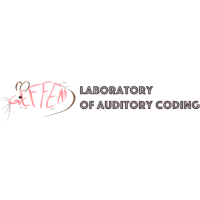
06 May PostDoc – Understanding the Neuronal Circuits for Auditory Perception and Memory
Postdoctoral positions in systems neuroscience at the University of Pennsylvania
The Geffen laboratory at the University of Pennsylvania has multiple postdoctoral positions open in systems neuroscience with the broad goal of understanding the neuronal circuits for auditory perception and memory. We are looking for energetic and talented scientists interested in studying the function of the brain. The postdoctoral fellow will have the opportunity to learn and apply a host of systems neuroscience techniques, including two-photon imaging of population activity, optogenetic manipulations, large-scale electrophysiology and behavior in mice. Prior experience with some of these methods is preferred, but not required. Depending on the candidate’s interests, all projects provide an opportunity to learn and apply advanced computational methods, including dynamic systems analysis of neuronal population activity; Bayesian approaches for understanding the relation between neuronal activity and behavior; machine learning methods to understand large-scale neuronal activity. We currently have openings for postdoctoral fellows for three projects:
(1) Neuronal mechanisms for predictive coding:
Auditory perception relies on predicting statistics of incoming signals, be it identifying the speech of a conversation partner in a crowded room or recognizing the sound of a babbling brook in a forest. The human brain detects statistical regularities in sounds as a fundamental aspect of prediction, evidenced by reduced responses to repeated sound patterns and enhanced responses to unexpected sounds. Multiple studies demonstrate that the neuronal responses to regular signals are reduced through adaptation, which can contribute to prediction. However, adaptation alone is not sufficient to account for prediction and studies at cellular and neuronal population levels in animals thus far lend only partial support to existing theories of predictive coding. The goal of the project is to close this gap in knowledge and to determine the circuits that predict signals and detect statistical regularity and its violation in auditory behavior. Funded by NIH NIDCD.
(2) Neuronal circuits for learning-driven changes in auditory perception:
Everyday auditory behavior depends critically on learning-driven changes in auditory perception that rely on neuronal plasticity within the auditory pathway. By combining state-of-the-art optogenetic, electrophysiological, behavioral and computational approaches, the project seeks to identify the function of specific circuit elements in auditory learning. Funded by NIH NIDCD.
(3) Neuronal mechanisms for hearing under uncertainty:
In everyday life, because both sensory signals and neuronal responses are noisy, important cognitive tasks, such as auditory categorization, are based on uncertain information. To overcome this limitation, listeners incorporate other types of signals, such as the statistics of sounds over short and long time scales and signals from other sensory modalities into their categorization decision processes. This project will identify the contribution of specific cell types to categorization and the neuronal mechanisms for how contextual signals bias auditory categorization. In collaboration with Dr. Yale Cohen and Dr. Konrad Kording, funded by NIH BRAIN Initiative.
Our laboratory is a close community of fun-loving scientists, striving to help each other while exploring the mysteries of the brain. Our trainees have won numerous awards and have been awarded government and private foundation grants. We value diversity and promote equity in the scientific community and beyond. The systems neuroscience community at the University of Pennsylvania is top-notch and highly collaborative, and postdoctoral fellows will have opportunities to engage in interdepartmental initiatives, including MindCore, MINS and CNI. Penn has a gorgeous campus and offers many cultural activities. Philadelphia is a beautiful city with world-class music, food and entertainment.
To apply, please email Dr. Geffen at mgeffen at pennmedicine.upenn.edu: a cover letter (summarize your prior research experience, why you are interested in the position, and your future plans) and your CV.
__
Maria N. Geffen, Ph.D. (she/her)
Associate Professor
Department of Otorhinolaryngology
Department of Neuroscience
Department of Neurology
Stemmler Hall G14
3450 Hamilton Walk
Philadelphia PA 19104
(215)898-0782
mgeffen at pennmedicine.upenn.edu
http://hosting.med.upenn.edu/hearing
Twitter: @neimarkgeffen
Please click here to learn more.


Sorry, the comment form is closed at this time.